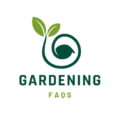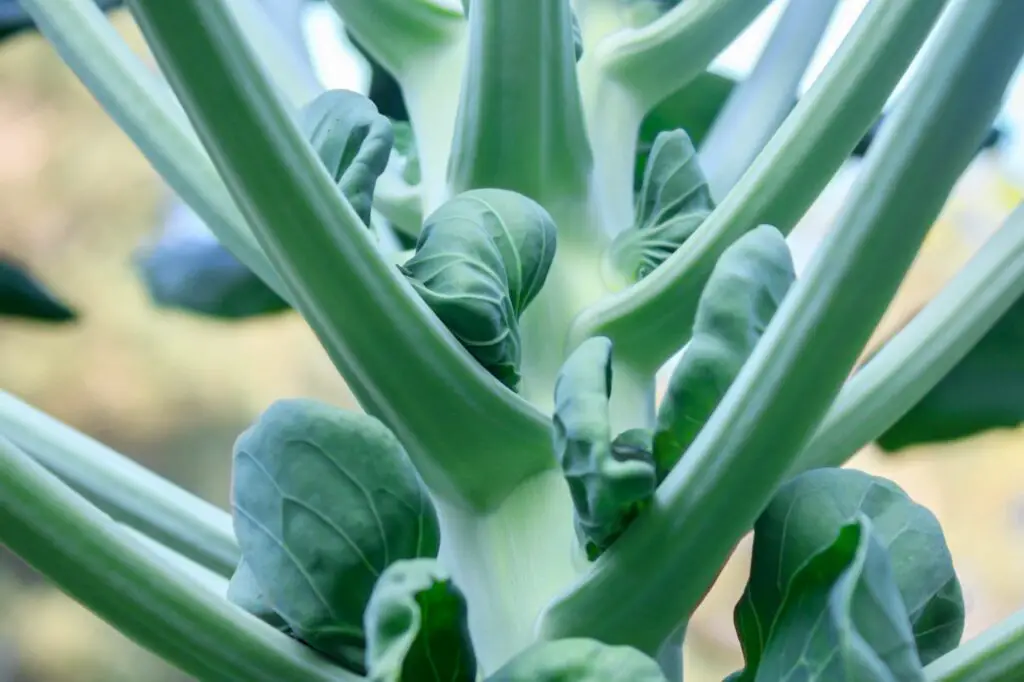Brussels sprouts are a nutritious and delicious vegetable that can be grown in your garden. However, not all plants are suitable to grow alongside them. Certain plants can have a negative impact on the growth and yield of Brussels sprouts. Understanding which plants to avoid planting next to Brussels sprouts is important for a successful harvest.
Companion planting is a popular gardening technique where certain plants are grown together to benefit each other. However, not all plants make good companions for Brussels sprouts. Some plants can attract pests or compete for resources, leading to stunted growth and reduced yields. Knowing which plants to avoid planting next to Brussels sprouts is crucial for a thriving garden.
Key Takeaways
- Certain plants can have a negative impact on the growth and yield of Brussels sprouts.
- Companion planting is a popular gardening technique, but not all plants make good companions for Brussels sprouts.
- Knowing which plants to avoid planting next to Brussels sprouts is crucial for a thriving garden.
Learn more about Brussels Sprouts:
What is a Good Companion Plant for Brussels Sprouts: 4 Benefits
Top 10 Brussels Sprouts Companion Plants
Understanding Brussels Sprouts
Brussels sprouts, also known as Brassica oleracea, are a cool-weather crop that belong to the same family as cabbage, kale, and broccoli. They are a type of vegetable that look like miniature cabbages and are known for their distinctive taste.
These vegetables have a long growing season and require a lot of care and attention to grow successfully. Gardeners who want to grow Brussels sprouts need to be prepared to invest time and effort in their plants.
Brussels sprouts are a hardy vegetable that can withstand cold temperatures and frost. They are typically planted in the early spring or late summer, depending on the climate and growing conditions.
One of the biggest challenges of growing Brussels sprouts is that they are susceptible to a range of pests and diseases. Gardeners need to be vigilant and take steps to prevent these problems from occurring.
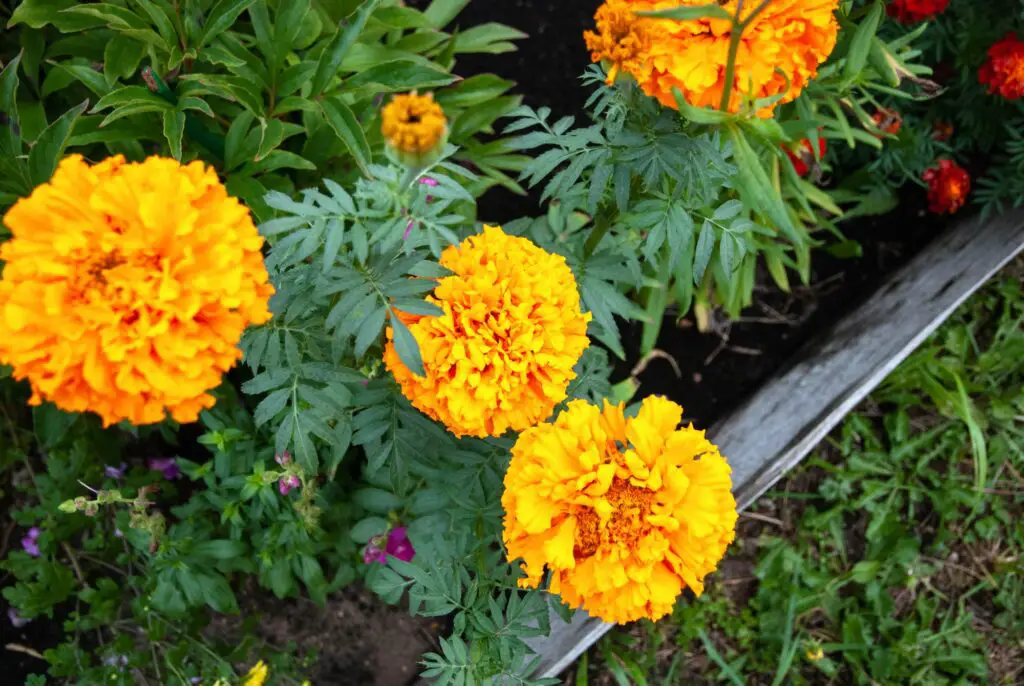
What Not to Plant Next to Brussels Sprouts
Companion planting is the practice of planting different crops together in a way that benefits both plants. Brussels sprouts, like all plants, have certain companion plants that can help them grow and thrive.
One of the best companion plants for Brussels sprouts is marigold. Marigolds are known to repel harmful insects and attract beneficial ones, making them an excellent choice for planting near Brussels sprouts. Other good companion plants include dill, onion, garlic, and mint. These plants also have insect-repelling properties and can help keep pests away from the Brussels sprouts.
Nasturtiums are another good companion plant for Brussels sprouts. They attract bees, which are important for pollination. Basil is also a good choice, as it can help repel pests and improve the flavor of the Brussels sprouts.
When choosing companion plants for Brussels sprouts, it is important to avoid plants that are in the same family, such as other Brassicas. These plants can attract the same pests and diseases and compete for nutrients, which can harm the growth of the Brussels sprouts.
Plants to Avoid Near Brussels Sprouts
When it comes to planting near Brussels sprouts, there are certain plants that should be avoided. These plants can have a negative effect on the growth and yield of Brussels sprouts, so it’s important to keep them away from each other. Here are some plants to avoid planting near Brussels sprouts:
- Tomatoes: Tomatoes and other members of the nightshade family, such as peppers and eggplants, should not be planted near Brussels sprouts. These plants are susceptible to the same diseases and pests, which can spread easily from one plant to another. Additionally, tomatoes and other nightshades can stunt the growth of Brussels sprouts.
- Strawberries: While strawberries are not harmful to Brussels sprouts, they can attract pests such as slugs and snails, which can also feed on Brussels sprouts. Therefore, it’s best to keep strawberries away from Brussels sprouts.
- Pole Beans and Peas: Pole beans and peas are nitrogen-fixing plants that can deplete the soil of nitrogen, which is essential for the growth of Brussels sprouts. It’s best to avoid planting these plants near Brussels sprouts.
- Kale, Broccoli, Cabbage, and Cauliflower: These plants are all members of the Brassica family, which includes Brussels sprouts. While they can be grown together, they should not be planted in the same spot year after year, as this can lead to a buildup of pests and diseases.
- Kohlrabi: Kohlrabi is another member of the Brassica family that should not be planted near Brussels sprouts. This is because they have similar pests and diseases, which can spread easily between the two plants.
- Mustard Greens and Collard Greens: These plants can also attract pests that can feed on Brussels sprouts. Additionally, they can deplete the soil of nutrients that are essential for the growth of Brussels sprouts.
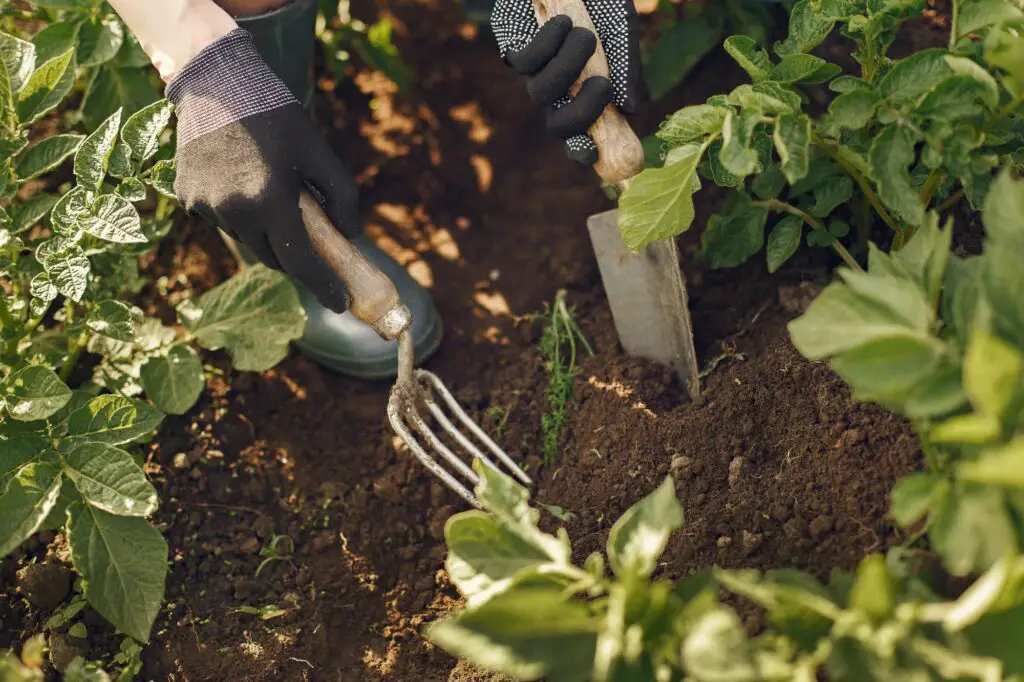
Impact of Soil and Sunlight
The success of Brussels sprouts growth depends on the quality of soil and the amount of sunlight they receive.
Soil
Brussels sprouts grow best in well-drained soil that is rich in organic matter. They require a pH level between 6.0 and 7.5. If the soil is too acidic, adding lime can help to raise the pH level. On the other hand, if the soil is too alkaline, adding sulfur can help to lower the pH level.
It is important to avoid planting Brussels sprouts in soil that has recently grown other plants in the Brassica family, such as cabbage, kale, or broccoli. These plants share many of the same pests and diseases, which can easily spread from one plant to another. Crop rotation is recommended to avoid soil-borne diseases.
Mulching around the base of the plant can help to retain moisture in the soil and prevent weed growth. It also helps to regulate the soil temperature and protect the roots from extreme temperatures.
Sunlight
Brussels sprouts require full sun to grow and thrive. They need at least six hours of direct sunlight per day. If they are planted in an area with too much shade, they may not grow properly and may produce smaller sprouts.
It is important to choose a planting site that receives full sun and is protected from strong winds. The temperature should be moderate, with an average temperature range of 60°F to 65°F. High temperatures can cause the plants to bolt and produce smaller sprouts.
Pests and Diseases
Brussels sprouts are susceptible to a variety of pests and diseases, which can cause significant damage to the plant and reduce yield. It is important to identify and manage these issues early to prevent them from spreading and causing irreparable damage.
Pests
Common pests that affect Brussels sprouts include aphids, flea beetles, cabbage loopers, whiteflies, Japanese beetles, nematodes, and squash bugs. These pests can cause damage by feeding on the leaves and stems of the plant, which can lead to stunted growth and reduced yield.
One effective way to manage pests is to introduce beneficial insects, such as ladybugs and lacewings, which prey on common pests like aphids and whiteflies. Planting trap crops, such as radishes and mustard greens, can also help to divert pests away from the Brussels sprouts.
Diseases
Brussels sprouts are also susceptible to a variety of diseases, including blight, downy mildew, and clubroot. These diseases can cause yellowing of the leaves, wilting, and stunted growth.
To prevent the spread of disease, it is important to practice good garden hygiene, such as removing infected plant material and avoiding overhead watering. Crop rotation can also help to prevent the buildup of soil-borne diseases like clubroot.
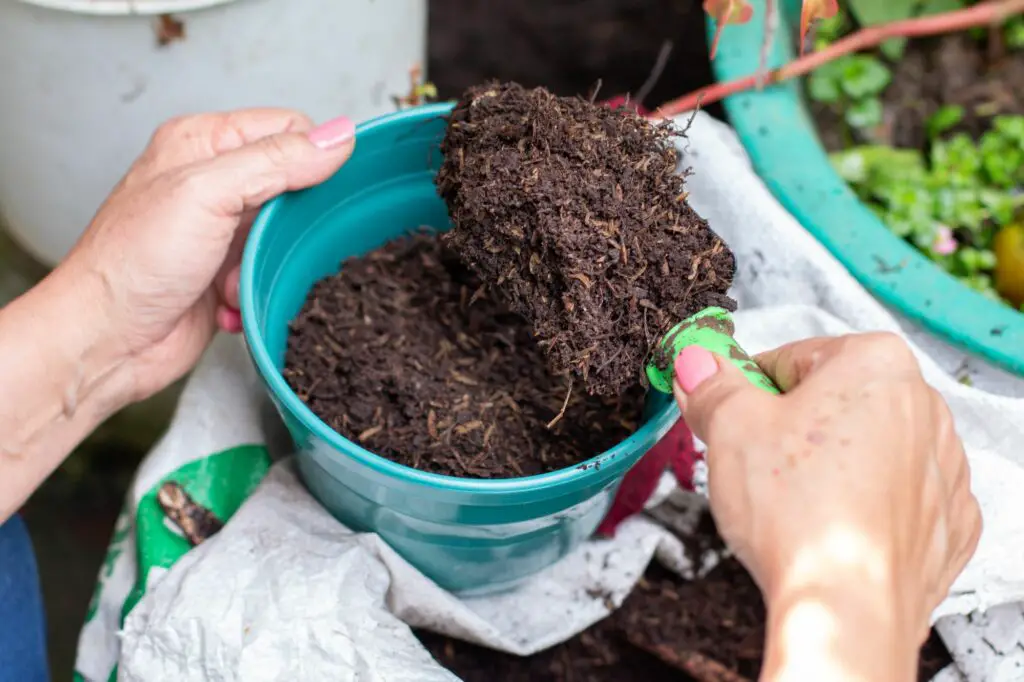
Nutrient Requirements and Watering
Brussel sprouts have similar nutritional, water, and light requirements as other members of the Cruciferae family. They require well-draining soil that is rich in organic matter. The soil pH should be between 6.0 and 7.5. Brussel sprouts need consistent moisture to grow well, but they are not drought-tolerant. Overwatering can lead to root rot, so it’s essential to maintain a balance.
Nutrients
Brussel sprouts require a balanced supply of nutrients to grow well. Nitrogen is essential for vegetative growth, while phosphorus and potassium are necessary for flowering and fruiting. A soil test can help determine the nutrient levels in the soil. If the soil is deficient in nutrients, adding a balanced fertilizer or compost can help provide the necessary nutrients.
Watering
Watering is critical for the growth and development of brussel sprouts. They require consistent moisture to grow well, but overwatering can lead to root rot. Watering should be done deeply, but not too frequently. It’s best to water in the morning to allow the foliage to dry before evening. Mulching can help retain moisture in the soil, reduce weed growth, and regulate soil temperature.
Nitrogen
Brussel sprouts require a steady supply of nitrogen to grow well. Nitrogen is essential for vegetative growth and the formation of leaves. Too much nitrogen can result in excessive vegetative growth and delay flowering. Nitrogen deficiency can result in stunted growth and yellowing of leaves. A balanced fertilizer or compost can help provide the necessary nitrogen.
Fertilizer
Fertilizing brussel sprouts can help improve growth and yield. A balanced fertilizer with equal parts of nitrogen, phosphorus, and potassium can help provide the necessary nutrients. It’s best to fertilize before planting and again when the plants are about 6 inches tall. Overfertilizing can lead to excessive vegetative growth, delay flowering, and reduce yield.
Compost
Composting can help improve soil quality and provide the necessary nutrients for brussel sprouts. Compost can help improve soil structure, retain moisture, and promote beneficial microorganisms. It’s best to add compost to the soil before planting and again during the growing season. Compost can be made from a variety of organic materials, such as leaves, grass clippings, and kitchen scraps.
Spacing and Planting Guidelines
When planting Brussels sprouts, it is important to consider spacing and planting guidelines to ensure a healthy and fruitful harvest. Brussels sprouts require adequate space to grow and develop properly.
Seedlings should be started indoors 6 to 8 weeks before the last frost date or 12 to 16 weeks before the first fall frost date if planting in fall. When seedlings are 3 inches tall, they can be transplanted outdoors. Brussels sprouts should be spaced 2 to 3 inches apart between plants and 2 to 3 feet apart between rows.
Row covers can be used to protect young plants from pests and harsh weather conditions. When planting in summer, it is important to provide shade for the young plants to prevent them from wilting in the heat.
When planting near Brussels sprouts, there are some plants that should be avoided. Cabbage, strawberries, tomatoes, and pole beans should not be planted nearby as they can inhibit the growth of Brussels sprouts. Mint, dill, and marigolds should also be avoided as they can attract pests that can damage the plants.
Brussels sprouts can be harvested in winter after the first frost when the sprouts are firm and green. The lower leaves can be removed to make harvesting easier. It is important to harvest the sprouts before they become loose and yellow.
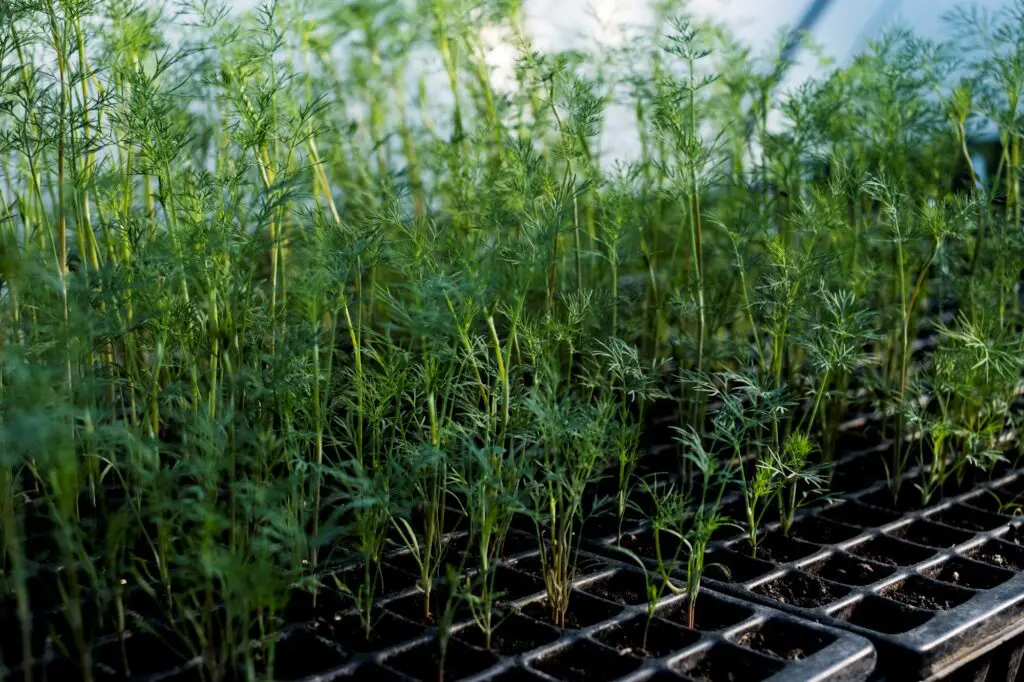
Other Considerations
When planting a vegetable garden, it is important to consider what plants should not be planted near each other. Brussels sprouts are no exception. While most plants will grow next to Brussels sprouts without incident, there are some plants that just don’t get along with them.
One important consideration is the cruciferae family. Brussels sprouts are part of this family, which includes other vegetables like broccoli, cauliflower, and kale. It is recommended to rotate these plants with non-cruciferae crops to prevent soil-borne diseases.
Beans, especially bush beans, should not be planted near Brussels sprouts. Their vigorous growth may overshadow and stunt the development of the sprouts. Additionally, beans and other legumes can fix nitrogen in the soil, which can lead to an overabundance of nitrogen for the Brussels sprouts.
Carrots and celery are also not ideal companions for Brussels sprouts. They can attract carrot rust fly and celery leaf tier, respectively, which can damage the sprouts.
Onions, beets, and spinach should also be avoided. Onions and beets can stunt the growth of the sprouts, while spinach can attract leaf miners and flea beetles.
Corn and eggplant are not recommended either. Corn can attract corn earworms, which can also damage the sprouts. Eggplant can attract flea beetles, which can cause significant damage to the sprouts.
Lettuce and chard are not necessarily harmful to Brussels sprouts, but they can compete for nutrients and water. It is recommended to plant them at a distance from the sprouts.
Aromatic plants like dill, fennel, and mint should also be avoided. They can attract pests like aphids and whiteflies, which can damage the sprouts.
Finally, cold winters can be detrimental to Brussels sprouts. They prefer temperatures between 60 and 65 degrees Fahrenheit. If the temperatures drop below 20 degrees Fahrenheit, the sprouts can be damaged or killed.
Frequently Asked Questions
What are some plants that should not be planted next to Brussels sprouts?
There are several plants that should not be planted next to Brussels sprouts. For example, cabbage, strawberries, tomatoes, and pole beans should be avoided. These vegetables produce chemicals that can inhibit the growth of Brussels sprouts.
Are there any plants that can harm the growth of Brussels sprouts?
Yes, there are some plants that can harm the growth of Brussels sprouts. For example, plants that belong to the Brassica family, such as broccoli, cauliflower, and kale, should be avoided. These plants can attract the same pests and diseases that affect Brussels sprouts, leading to stunted growth and poor yields.
Which vegetables should be avoided when planting near Brussels sprouts?
In addition to the plants mentioned above, there are a few other vegetables that should be avoided when planting near Brussels sprouts. These include radishes, beets, lettuce, chard, and clover. While these plants are often recommended as companion plants for Brussels sprouts, they can also attract pests and diseases that can harm the growth of the sprouts.
What are some negative effects of planting certain vegetables near Brussels sprouts?
Planting certain vegetables near Brussels sprouts can have negative effects on the growth of the sprouts. For example, planting cabbage near Brussels sprouts can attract cabbage worms, which can damage the leaves of the sprouts. Similarly, planting tomatoes near Brussels sprouts can attract tomato hornworms, which can also damage the leaves of the sprouts.
Can certain plants attract pests or diseases that could harm Brussels sprouts?
Yes, certain plants can attract pests or diseases that could harm Brussels sprouts. For example, planting marigolds near Brussels sprouts can attract spider mites, which can damage the leaves of the sprouts. Similarly, planting beans near Brussels sprouts can attract aphids, which can also damage the leaves of the sprouts.
What are some examples of companion plants that should not be planted with Brussels sprouts?
While there are many companion plants that can benefit Brussels sprouts, there are also some plants that should not be planted with them. For example, planting dill near Brussels sprouts can attract cabbage butterflies, which can lay their eggs on the sprouts. Similarly, planting strawberries near Brussels sprouts can attract slugs, which can damage the leaves of the sprouts.
